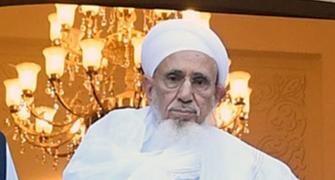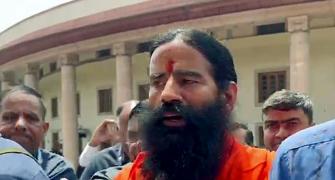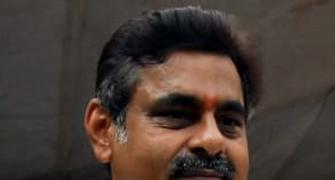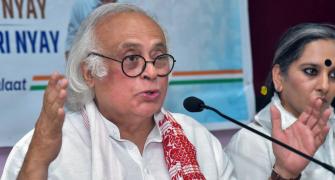Under the revised GSP scheme, India will recover benefits for leather and skin products and the status quo will remain on textile and clothing.
The EU's GSP scheme is implemented following a cycle of 10 years with the guidelines for the period from 2006-2015 were adopted in 2004 and aims at more transparency in selecting countries and the number of schemes have been reduced from five to three, said Mariella Cantagalli, first secretary, Trade and Economic Section, Delegation of the European Commission in New Delhi.
Under the new GSP Plus scheme, which will be implemented from January 1, 2006 would take into various international standards and the 7200 products exported by India, half of them will be duty free and lower or no duties for textiles.
The export helpdesk for developing countries will help exporters expand their exports to the EU.
It includes GSP tariffs, document requirements, rules of origin, specific requirements for import of products to EC, internal taxes applicable to products and also allows countries to search for business partners.
Cantagalli stating the rising importance of Indo-EU trade stated that as per 2004 figures EU contributes 23.7 per cent in exports and 16.69 per cent to imports in the country and 14 per cent of foreign direct investment in India comes from the EU.
The bilateral trade between India and EU, according to EU-India Copenhagen Summit is set to reach Euro 35 billion by 2005 and to Euro 50 billion by 2008.
But India's contribution to EU trade presents a much bleaker picture contributing 1.7 per cent of EU's exports and 1.6 per cent of EU imports, behind Malaysia and Singapore.
There are certain apprehensions on both sides regarding facilitation policies, EU feels that impediments like high tariffs, non transparency and often discriminatory duties and taxes coupled with excessive non tariff barriers and infrastructure bottlenecks impede optimisation of trade, Cantagalli pointed out.
India's take on the matter is that Sanitary and Phytosanitary Measures and Technical Barriers to Trade hamper the ease of conducting trade especially in the area of NTB of contamination and testing of items like grapes, chilli powder, spices and tea residue.
Speaking on agriculture, a subject on which Cantagalli specialises and is of prime importance to India, she noted that the global agricultural pattern has moved a long way from paying farmers for their produce to bring about food security after the World War II to making farmers consider issues of food security, payment being made irrespective of produce and making the farmers focus on quality food production by adhering to environmental norms.
The Framework Agreement on Agriculture includes reduction of trade distorting domestic support, greater market access by reducing tariff from bound rates by tier system and the special products system based on food and livelihood security and rural development needs.
The process initiated by GSP will continue with the EU-India Strategic Alliance and the Framework Agreement of 2004 with a joint action plan, which among measures to increase bilateral and multilateral trade, also includes regulatory considerations especially in the information technology, energy and bio-technology sectors and possible civil aviation, maritime and customs agreement to raise trade volumes with coherent economic strategy.








